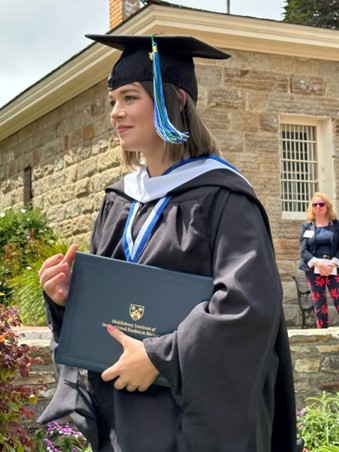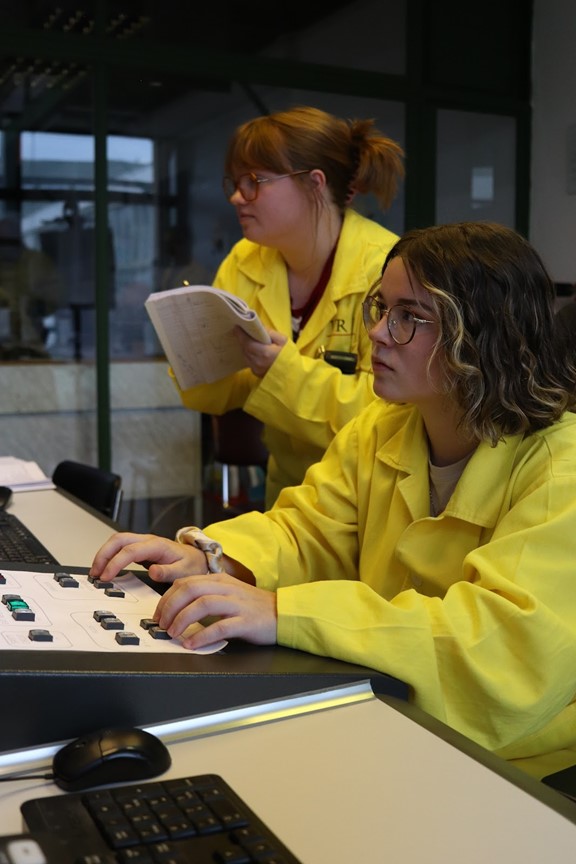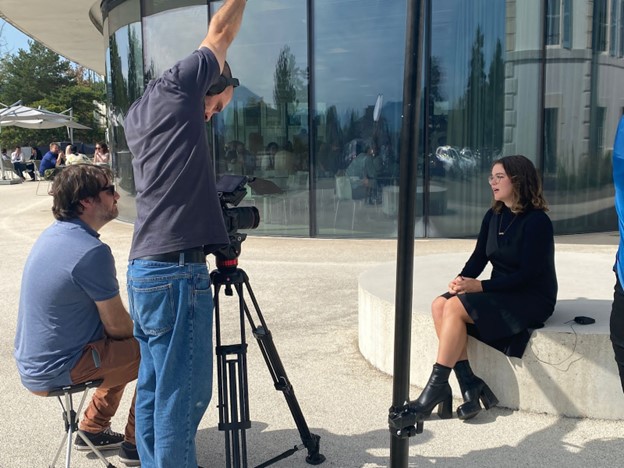Becoming a Nuclear Expert
Mackenzie Knight, October 27, 2023
“Raise your hand if you would have dropped the nuclear bombs on Hiroshima and Nagasaki if you were Harry Truman.” This question was the first sentence out of my professor’s mouth at the start of class. I was a sophomore in undergrad, and I turned around to see a scarce few of my peers raising their hands while mine sat firm in my lap.
My professor of U.S. Foreign Policy in the Nuclear Age spent class that day attempting to clear our minds of hindsight bias and demonstrate how the decision was made by Truman and the Interim Committee, analyzing their “reasonings” one by one. A land invasion would have killed hundreds of thousands of U.S. troops, they predicted. We were already leveling cities with bombs, and now we could do it with just one. The Japanese will never surrender, they presumed. They did not yet know the devastating effects of nuclear weapons, she told us. We spent billions of dollars on developing this weapon; we can’t just not use it, they reasoned.

I sat fuming through this presentation of supposed justifications. “Now,” she repeated an hour later, “raise your hand if you would have dropped the nuclear bombs on Hiroshima and Nagasaki if you were Harry Truman.” I turned again to see the majority of my classmates slowly, reluctantly, raise their hands. I was confused and indignant that my professor could try to justify these bombings – until she spoke again. Once everyone’s hands were returned to their laps, she concluded the class with this final lesson: people can justify using these horrible weapons. They have in the past, and they might do so again. It took one 60-minute class for my professor to “convince” my classmates that dropping the nuclear weapons on Hiroshima and Nagasaki was a logical decision.
My professor was demonstrating that it is irresponsible to treat the use of nuclear weapons as an historic anomaly or a future impossibility because some other world leader might be able to justify it to themselves someday. The thought petrified me. She wasn’t telling us that sometimes using a nuclear weapon is necessary or that dropping Little Boy and Fat Man was the right decision; she was saying to go out in the world and make sure it can never happen again. That lesson was a turning point for me. That day, I decided I was going to spend my life pursuing nuclear disarmament and nonproliferation.
By the end of the same semester, I had created my own degree titled “Policy and Intelligence Analysis.” I tailored my studies around the complex, interconnected relationship between intelligence analysis and decision-making, with a concentration on weapons of mass destruction.
I became a TA for the class and went on to complete an internship at the Arms Control Association and earn my master’s in nonproliferation studies from the Middlebury Institute of International Studies. During my two years at the Middlebury Institute, I took classes and workshops and worked as a Graduate Research Assistant (GRA), becoming an expert in issues related to weapons of mass destruction, from nonproliferation and arms control to disarmament. I participated in intensive workshops on nuclear safety and security, in-depth dives into the history of different nuclear powers’ programs, and immersive simulations of arms control negotiations. As a GRA, I assisted with research projects on current and emerging issues in the field, including regional security issues and emerging technologies in the Middle East, Russia-NATO dynamics, and the security situation in the Black Sea leading up to the war in Ukraine.

One source that I cited countless times while working on these projects was the Federation of American Scientists (FAS) Nuclear Notebook, a bimonthly publication in the Bulletin of Atomic Scientists covering global nuclear arsenals and other nuclear weapons topics. FAS’s Nuclear Notebooks are one of the most widely sourced references around the world for nuclear weapons updates. Now, six years after the class that started it all—six years of gaining knowledge and research skills later—I am a Scoville Fellow on FAS’s Nuclear Information Project. I work daily with the authors I have held in such high esteem for years, and my name will be listed alongside theirs as an author of forthcoming Nuclear Notebooks.

I’m in Washington, D.C., working every day in the career I dreamed of toward the world I envision. I’m working alongside and under the mentorship of people I’ve looked up to for years, solidifying my place in the strong community of writers, researchers, activists, and organizers who care about eliminating the risk of nuclear weapons as much as I do. As long as nuclear weapons exist, I will continue to work to rid the world of the danger they pose. I dream of the day when I’m out of a job.
Mackenzie Knight is a Fall 2023 Scoville Fellow with the Federation of American Scientists.
